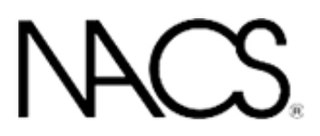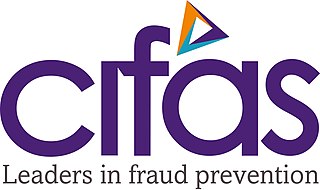
The Fair Credit Reporting Act (FCRA), 15 U.S.C. § 1681 et seq., is federal legislation enacted to promote the accuracy, fairness, and privacy of consumer information contained in the files of consumer reporting agencies. It was intended to shield consumers from the willful and/or negligent inclusion of erroneous data in their credit reports. To that end, the FCRA regulates the collection, dissemination, and use of consumer information, including consumer credit information. Together with the Fair Debt Collection Practices Act (FDCPA), the FCRA forms the foundation of consumer rights law in the United States. It was originally passed in 1970, and is enforced by the U.S. Federal Trade Commission, the Consumer Financial Protection Bureau, and private litigants.
TransUnion LLC is an American consumer credit reporting agency. TransUnion collects and aggregates information on over one billion individual consumers in over thirty countries including "200 million files profiling nearly every credit-active consumer in the United States". Its customers include over 65,000 businesses. Based in Chicago, Illinois, TransUnion's 2014 revenue was US$1.3 billion. It is the smallest of the three largest credit agencies, along with Experian and Equifax.

Equifax Inc. is an American multinational consumer credit reporting agency headquartered in Atlanta, Georgia and is one of the three largest consumer credit reporting agencies, along with Experian and TransUnion. Equifax collects and aggregates information on over 800 million individual consumers and more than 88 million businesses worldwide. In addition to credit and demographic data and services to business, Equifax sells credit monitoring and fraud prevention services directly to consumers.

Capital One Financial Corporation is an American bank holding company founded on July 21, 1994 and specializing in credit cards, auto loans, banking, and savings accounts, headquartered in Tysons, Virginia with operations primarily in the United States. It is the 12th largest bank in the United States by total assets as of December 31, 2022, the third largest issuer of Visa and Mastercard credit cards, and one of the largest car finance companies in the United States.
A mortgage broker acts as an intermediary who brokers mortgage loans on behalf of individuals or businesses. Traditionally, banks and other lending institutions have sold their own products. As markets for mortgages have become more competitive, however, the role of the mortgage broker has become more popular. In many developed mortgage markets today,, mortgage brokers are the largest sellers of mortgage products for lenders. Mortgage brokers exist to find a bank or a direct lender that will be willing to make a specific loan an individual is seeking. Mortgage brokers in Canada are paid by the lender and do not charge fees for good credit applications. In the US, many mortgage brokers are regulated by their state and by the CFPB to assure compliance with banking and finance laws in the jurisdiction of the consumer. The extent of the regulation depends on the jurisdiction.
A credit history is a record of a borrower's responsible repayment of debts. A credit report is a record of the borrower's credit history from a number of sources, including banks, credit card companies, collection agencies, and governments. A borrower's credit score is the result of a mathematical algorithm applied to a credit report and other sources of information to predict future delinquency.
A credit bureau is a data collection agency that gathers account information from various creditors and provides that information to a consumer reporting agency in the United States, a credit reference agency in the United Kingdom, a credit reporting body in Australia, a credit information company (CIC) in India, a Special Accessing Entity in the Philippines, and also to private lenders. It is not the same as a credit rating agency.
HSBC Finance Corporation is a financial services company and a subsidiary of HSBC Holdings. It is the sixth-largest issuer of MasterCard and Visa credit cards in the United States. HSBC Finance Corporation was formed from the legal entity that had been known as Household International—shortly after Household International settled for US$486 million in charges pertaining to predatory lending, after burning through $389 million in legal fees and expenses—and is now expanding its consumer finance model via the HSBC Group to Brazil, India, Argentina and elsewhere.
Innovis is the credit reporting division of CBC Companies and is considered the fourth largest consumer credit reporting agency in the United States, behind the “big three” Experian, TransUnion, and Equifax. Based in Columbus, Ohio, the company offers services like fraud protection, credit information, identity verification, and receivables management.
A credit score is a numerical expression based on a level analysis of a person's credit files, to represent the creditworthiness of an individual. A credit score is primarily based on a credit report, information typically sourced from credit bureaus.
A debt buyer is a company, sometimes a collection agency, a private debt collection law firm, or a private investor, that purchases delinquent or charged-off debts from a creditor or lender for a percentage of the face value of the debt based on the potential collectibility of the accounts. The debt buyer can then collect on its own, utilize the services of a third-party collection agency, repackage and resell portions of the purchased portfolio, or use any combination of these options.
BAI is a nonprofit organization in the United States that provides research, training, and thought leadership events for the financial services industry. Headquartered in Chicago, Illinois, BAI also operates Banking Strategies, a daily online financial services publication.
The following article is based on UK market; other countries may differ.

The National Association of Convenience Stores (NACS) is a trade association representing the convenience and fuel retailing industry. Founded in 1961, NACS has thousands of member companies, primarily in the United States but also in about 50 other countries. NACS conducts market research, hosts conferences and trade shows, and conducts political and legal advocacy. NACS is particularly concerned with the regulation of motor fuels, high credit card swipe fees, and labor law.
An identity score is a system for detecting identity theft. Identity scores are increasingly being adopted as a means to prevent fraud in business and as a tool to verify and correct public records.

Credit card fraud is an inclusive term for fraud committed using a payment card, such as a credit card or debit card. The purpose may be to obtain goods or services or to make payment to another account, which is controlled by a criminal. The Payment Card Industry Data Security Standard is the data security standard created to help financial institutions process card payments securely and reduce card fraud.

Cifas is a fraud prevention service in the United Kingdom. It is a not-for-profit membership association representing organisations from across the public, private and voluntary sectors. Cifas states its mission is "to detect, deter and prevent fraud in society by harnessing technology and working in partnership".
Bank regulation in the United States is highly fragmented compared with other G10 countries, where most countries have only one bank regulator. In the U.S., banking is regulated at both the federal and state level. Depending on the type of charter a banking organization has and on its organizational structure, it may be subject to numerous federal and state banking regulations. Apart from the bank regulatory agencies the U.S. maintains separate securities, commodities, and insurance regulatory agencies at the federal and state level, unlike Japan and the United Kingdom. Bank examiners are generally employed to supervise banks and to ensure compliance with regulations.
The New York State Banking Department was created by the New York Legislature on April 15, 1851, with a chief officer to be known as the Superintendent. The New York State Banking Department was the oldest bank regulatory agency in the United States.
In consumer lending, mortgage origination, a specialized subset of loan origination, is the process by which a lender works with a borrower to complete a mortgage transaction, resulting in a mortgage loan. A mortgage loan is a loan in which property or real estate is used as collateral. During this process, borrowers must submit various types of financial information and documentation to a mortgage lender, including tax returns, payment history, credit card information and bank balances. Mortgage lenders use this information to determine the type of loan and the interest rate for which the borrower is eligible. The process in the United States has become complex due to the proliferation of loan products and consumer protection regulations.





